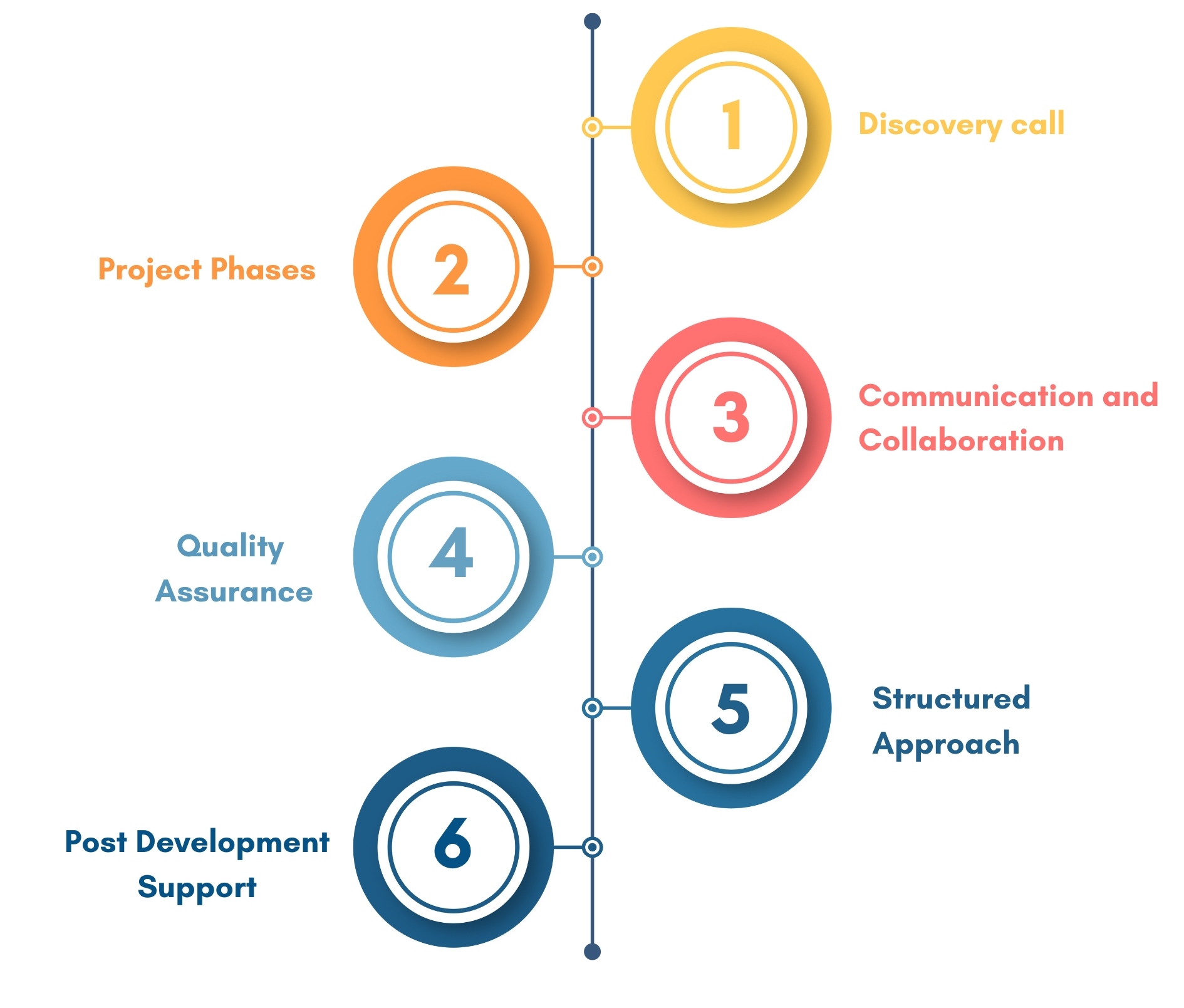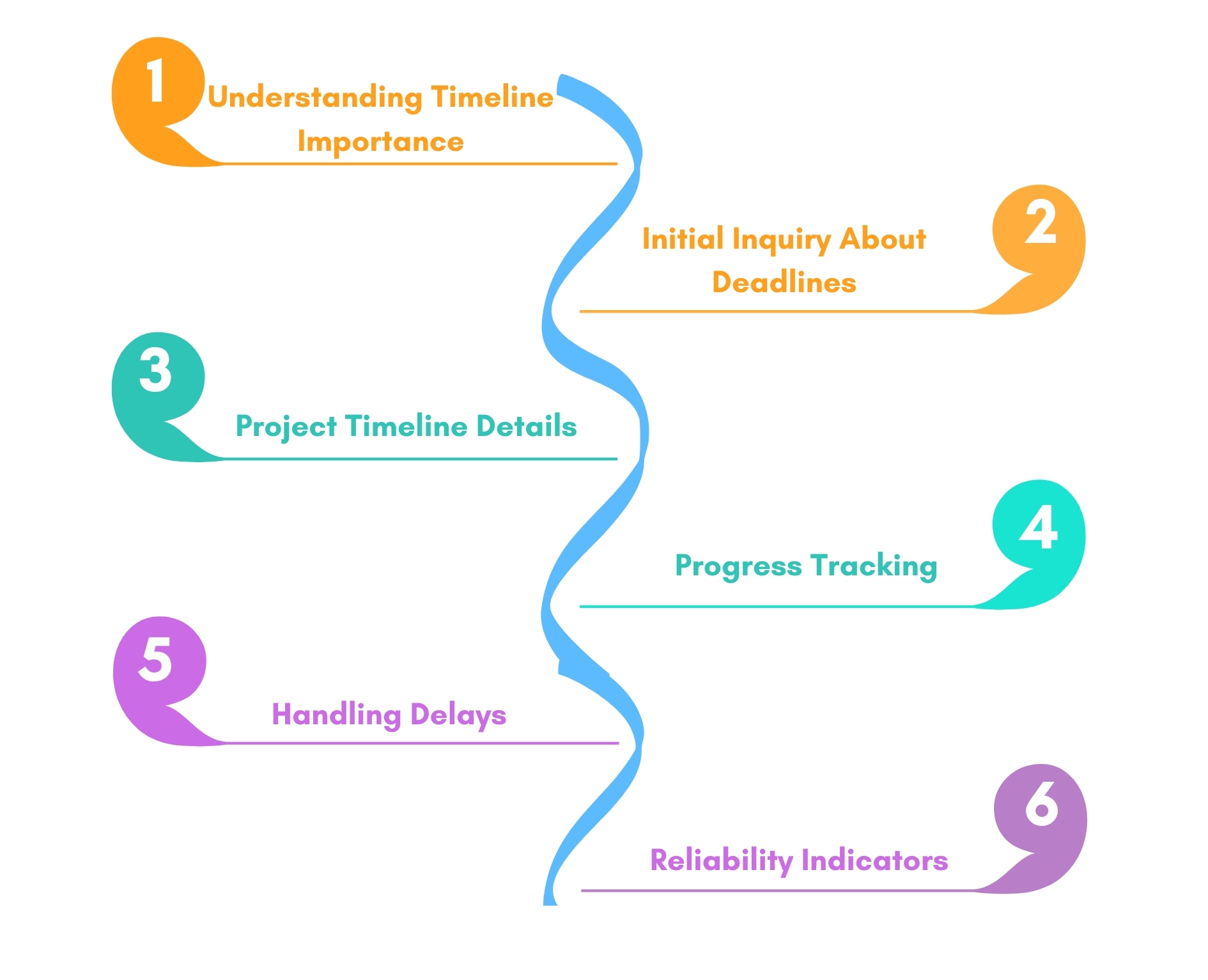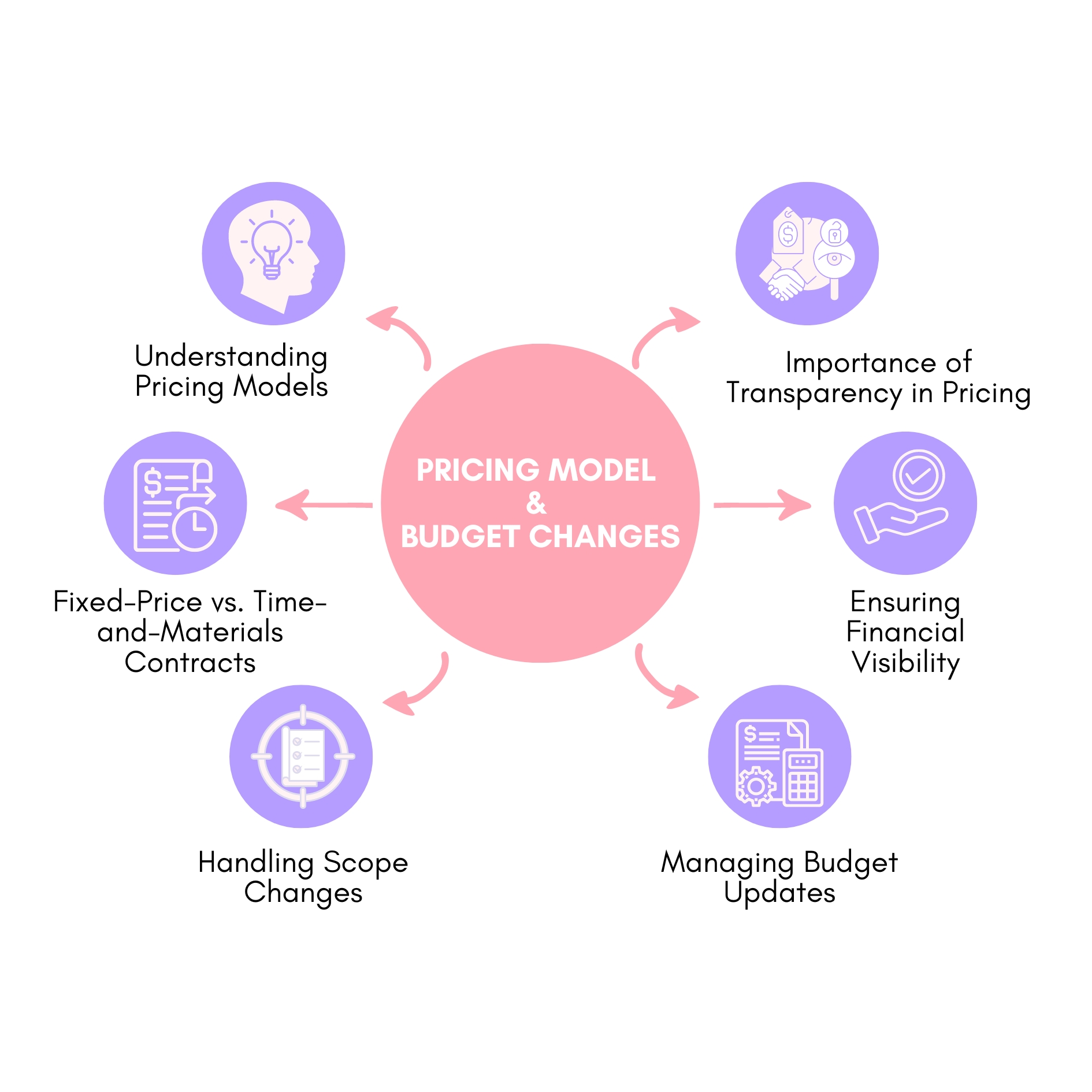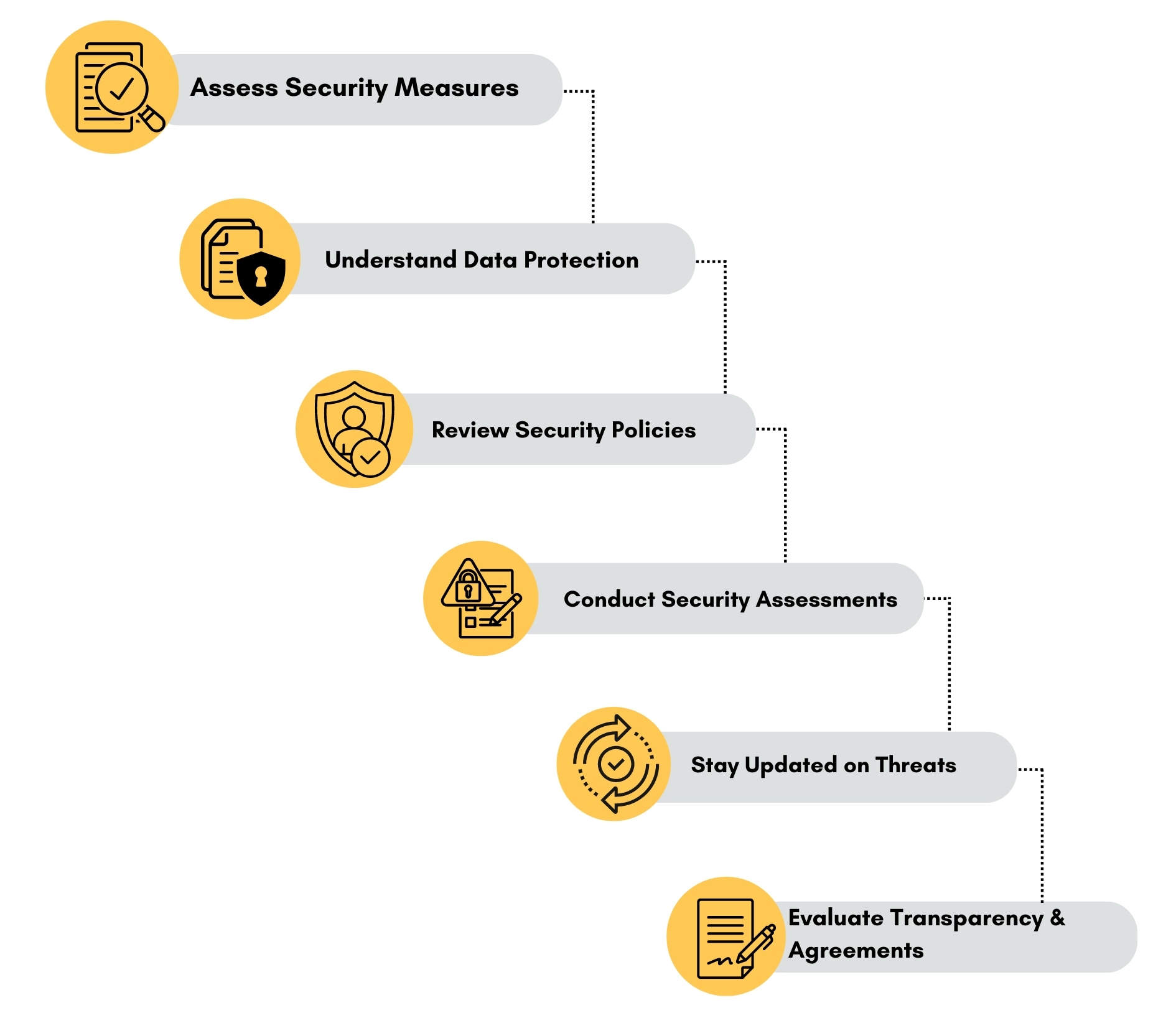10 Essential Questions to Ask Before Hiring a Software Development Company
10 min read . November 5, 2024
Content
- Introduction
- What Is Your Experience with Similar Projects?
- Can You Provide References or Testimonials?
- What is Your Development Process?
- How Do You Manage Project Timelines and Deadlines?
- Who Will Be Working on My Project?
- What Is Your Pricing Model, and How Do You Handle Budget Changes?
- How Do You Ensure the Security of Our Data and Software?
- What Post-Launch Support Do You Offer?
- Can You Provide a Timeline for the Project?
- How Do You Handle Communication and Feedback During the Project?
- Conclusion
Introduction
Hiring a custom software development company is an important decision for any business looking to unlock its full potential. Your decision on who to choose for this job can make or break your project. The company you decide on should be able to understand your goals, provide clear communication, and demonstrate a flexible and collaborative approach. But with countless custom software development companies out there, how do you know who is right for your project?
To better understand this process, asking the right questions is critical. This guide provides 10 essential questions that will help you assess potential software development companies, ensuring they have the skills, experience, and processes in place to deliver your project successfully.
By the end of this guide, you will be equipped with the essential tools to aid you in your search for the right custom software development partner.
What Is Your Experience with Similar Projects?
One thing that you must know before you go on your hiring journey is that experience matters. You want a team that is not just familiar with coding, but one that understands the unique challenges and opportunities in your industry tackles every problem that it encounters, and has a proper system in place to manage its processes.
Do not hesitate to ask whether they have developed any software that is similar to yours in the past. Software development can vary significantly across different industries, and a company familiar with your sector can provide valuable insights and tried-and-tested solutions. For instance, if you are in healthcare, ask questions such as, “Can you share examples of patient management systems you’ve built for hospitals or clinics?”
By asking these questions, you are assessing their ability to navigate your industry’s specific regulations, standards, and best practices. A company with relevant experience is more likely to anticipate potential issues and avoid them at the early stages. They are also easily adaptable to new technologies and methodologies.
In essence, the right experience not only accelerates the process but also ensures that your custom software solution is well-suited to your specific needs.
Can You Provide References or Testimonials?
In the world of software development, a company's past performance is often the best indicator of future success. That's why asking for references and testimonials is crucial in your selection process.
References and testimonials offer an objective perspective on a company’s performance and reliability. Any reputable software development company should be able to provide customer testimonials from previous clients. If they’re hesitant, it is better to avoid them.
When you receive references, follow up with past clients. Consider asking them the following questions:
-
How satisfied were they with the final product?
-
Did the company meet deadlines and stay within budget?
-
How was the communication throughout the project?
-
Were there any significant challenges, and how were they handled?
-
Would they work with the company again?
Don’t forget to check third-party review platforms like Clutch or Google Reviews and case studies on the company’s website. This research might give you a well-rounded view of the company’s reputation and reliability.
What is Your Development Process?
Understanding a company’s development process is crucial for ensuring that their approach aligns with your expectations and project requirements.
Ask the development company to walk you through their process. What are the key phases of the project? How do they handle feedback, revisions, and feature changes during the development cycle? Knowing how they manage communication, collaboration, and project changes will give you a clearer picture of how involved you’ll need to be.
For example, you might ask, "How do you approach the requirements-gathering phase? How do you ensure you fully understand our needs before starting development?" Or, "Can you walk me through your quality assurance procedures? How do you ensure the software meets our specifications?"
A well-defined process indicates that the company has a structured approach to development, which can lead to more predictable outcomes and better project management. Look for a company that can clearly explain its process and how it benefits your project.

How Do You Manage Project Timelines and Deadlines?
During the software development process, time is often of the essence. Missed deadlines can cause cost overruns, disrupt business operations, and lead to frustration. To avoid these pitfalls, it's important to understand how the company manages its timelines.
Ask about their approach to setting realistic deadlines. Do they provide a detailed project timeline from the start? How do they track progress, and what happens if delays occur? Companies that use project management tools such as Jira, Trello, or Asana often have more control over their schedules and can provide more accurate timeline predictions.
A reliable custom software development company should have a clear system for tracking progress and managing timelines, with contingency plans in place for potential setbacks. They should be able to provide regular updates on project status and be proactive in addressing any delays.

Who Will Be Working on My Project?
It’s essential to know the team behind your project. This includes the developers, designers, and project managers who will be handling various aspects of the software development process. Their skills, experience, and ability to work together will significantly affect the outcome of your project.
Ask the company about the specific roles of each team member and their experience with similar projects. Will they have a dedicated project manager? Are the developers in-house or outsourced?
You might ask, "Can you tell me about the expertise of the backend developers who would work on my project? How many years of experience do they have with the technologies we'll be using?"
Also, inquire about team consistency. Will the same team work on your project from start to finish, or might there be changes? How do they handle knowledge transfer if team members change? Clarity on the team structure helps ensure the right people are working on your project and that there will be consistent communication throughout the development process.
What Is Your Pricing Model, and How Do You Handle Budget Changes?
Software companies typically offer different pricing models, such as fixed-price contracts or time-and-materials (hourly rate) models. Understanding their pricing model and how they handle unforeseen costs or scope changes is essential.
Fixed-price contracts provide a clear upfront cost but might lack flexibility if your project requirements change. In contrast, time-and-materials models offer flexibility but can result in unpredictable final costs. Ask the company how they determine pricing and what happens if the scope of work changes mid-project.
You might ask, "How do you handle requests for additional features mid-project? What's your process for approving and implementing changes that affect the budget?"
Also, inquire about how they manage budget updates. Do they provide regular financial reports? How do they communicate potential overages? This ensures you have full visibility and control over the project’s financial health.
Understanding these details will help you plan your budget accordingly and ensure both parties are aligned throughout the project. A transparent approach to pricing and a clear process for handling changes can prevent misunderstandings and ensure a smooth development process.

How Do You Ensure the Security of Our Data and Software?
Ensuring that your data and software are protected throughout the development process is paramount.
Figure out what security measures they implement, such as encryption, secure coding practices, and regular security audits. Ask about their security practices and how they protect client data and intellectual property. For example, "What measures do you take to protect sensitive data from breach? How do you ensure the final product is secure against potential threats?"
Inquire about their compliance with relevant industry standards and regulations. Do they conduct regular security audits and penetration testing? How do they stay updated on the latest security threats and best practices?
A reputable custom software development company should be able to provide detailed information about its security protocols and be willing to sign non-disclosure agreements if required.

What Post-Launch Support Do You Offer?
The launch of your custom software is just the beginning. You need to know what kind of support you can expect after your software goes live.
Ask about their post-launch support offerings. How long do they provide support after the software goes live? What's their process for handling bug fixes and updates?
You might ask, "What's your process for implementing updates and new features after the initial launch? How quickly can you respond to critical issues? How quickly do you respond to support requests?”
Also, discuss the possibility of establishing a long-term partnership for continuous improvement and updates to your software.
A reliable support plan will give you peace of mind, knowing that you can count on the company to fix problems quickly and efficiently.
Can You Provide a Timeline for the Project?
While it's challenging to provide an exact timeline without a detailed project scope, an experienced custom software development company should be able to give you a rough estimate based on similar projects they've completed.
Ask for a high-level project roadmap with major milestones. You might say, "Can you provide a rough timeline for the design, development, and testing phases of our project? What factors might affect this timeline?"
Discuss how they break down the project into manageable sprints or phases, and how they prioritize features. This will give you an idea of when you can expect to see progress and when certain functionalities will be available.
Remember that software development timelines can be fluid, especially for complex projects. A good company will be transparent about this and keep you updated on any changes to the timeline throughout the project.
How Do You Handle Communication and Feedback During the Project?
Clear communication is the cornerstone of a successful software development project. Before committing to a company, ensure they have a solid communication plan that includes regular updates, feedback loops, and direct contact with project managers.
Ask about their preferred communication channels and the frequency of status updates. How do they incorporate client feedback into the development process?
You might ask, "How often will we have progress meetings during the development of our custom software? What's your process for collecting and implementing our feedback?"
Inquire about their policy on client involvement. Some companies prefer regular check-ins and encourage active client participation, while others might have a more hands-off approach. Make sure their communication style aligns with your expectations and needs.
Conclusion
Remember, the right company should not only have the technical skills to deliver your project but also align with your business goals and work culture. Take the time to thoroughly evaluate potential partners, and don't hesitate to ask follow-up questions or request additional information.
The questions that you ask help you get to know your partner better before you both begin on your software development journey.
For more insights on how to choose your custom software development company, don't miss out on our previous blog post on How to choose the right custom software development company: A detailed guide
At Proppify, we're committed to being the perfect blend of technical expertise and client-focused service. We're ready to answer all these questions and more, ensuring that your custom software development project is a success from the first line of code to the final deployment and beyond.
Ready to start your custom software development journey? Check out our custom software development services to learn how we can help bring your vision to life.
Ready to take the next step in your software development journey?
Schedule a consultation with our team today. Let’s discuss your project requirements and explore how we can help you achieve your goals


